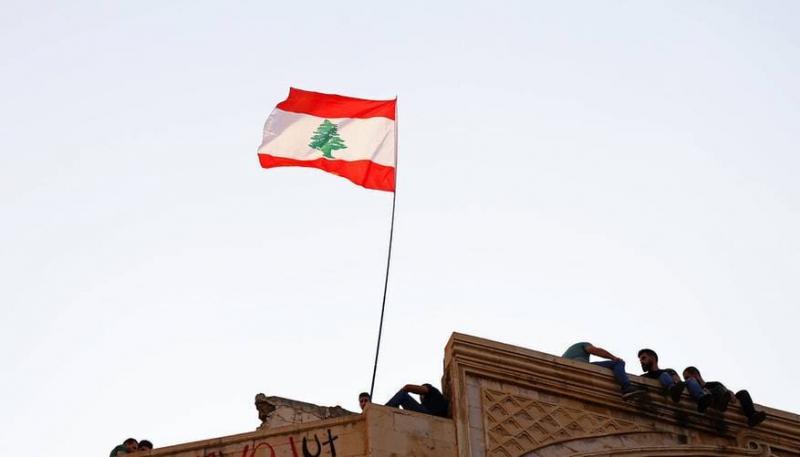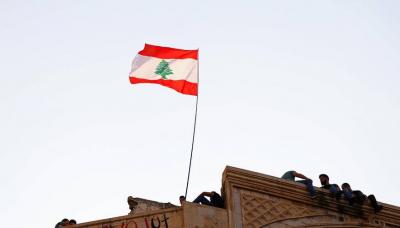The newspaper Asharq Al-Awsat reported on the crisis in Lebanon, noting that the value of the US dollar has skyrocketed against the Lebanese lira in the parallel markets, undermining the preliminary measures taken by Lebanese authorities last week to rationalize fuel subsidies and implement the financial aid card. Lebanese citizens were taken by surprise as the dollar's price quickly rose past 17,000 lira, nearing 18,000 lira amid increasing speculation following rumors of many major and regular stores immediately adopting pricing close to 20,000 lira per dollar as a precaution, while many opted to close over the weekend in anticipation of exacerbating monetary chaos.
Financial and banking sources told Asharq Al-Awsat that the market's negative reactions are automatic and intuitive responses, coinciding with the rising general risks stemming from the official approach to exhaust the last foreign currency reserves.
Regardless of the amounts to be spent for financing fuel imports for three months, estimated at about 500 million dollars, a month prior, the excuse of "exceptional circumstances" was previously adopted for the legal coverage to fund electricity needs for about three months with an amount of 200 million dollars. There are serious concerns regarding similar credits to cover the deficits associated with the financial aid card and other urgent external state expenses or essential goods, knowing that the financing of wheat and medicine imports continues at the exchange rate of 1,515 lira per dollar.
In analysts' and experts' assessments, "opening a funding window from mandatory reserves for deposits in foreign currencies is akin to opening the doors of a dilapidated house amid a storm and an official declaration of the state's bankruptcy," after the current government, during its initial "rescue" tasks, forcibly removed Lebanon and its public and private financial documents from international financial markets about 15 months ago by suspending payments of international debt obligations distributed over maturities up to 2037, without making any serious negotiating efforts with foreign creditors.
Following the catastrophic explosion at the Beirut port and the resignation of the government, negotiations regarding a support and financing program with the International Monetary Fund were also halted.
In addition to the exacerbating repercussions affecting all aspects of life in the besieged country and the intensifying living and economic crises, sources point to "the risk of savings in banks being subject to near-total erosion, turning into mere bookkeeping entries pending the restoration of the financial balance of the bankrupt state, which will ensure that new debts meet the central bank's conditions." Banking sources questioned, "What prevents decision-makers in the state from shirking their responsibilities later and responding to the demands of crises that are expanding towards fragile security and internal stability," at a time when "the central bank has openly declared its complete inability to finance the state's financial deficits from its free reserves, which have been entirely exhausted at the request of the same authorities, including covering documentary credits and transfers to support a range of strategic and essential goods."
Considering that the remaining reserves at the central bank exclusively belong to depositors in banks, who have been sidelined from the new trends to secure financing, the sources see "that institutionalizing the principle of funding public spending primarily from savings through seizing banks' investments at the central bank in the previous period, culminating in a mandatory reserve currently equivalent to 14% of the amount of deposits in foreign currencies, will inevitably dissipate any hopes of recovering the withheld rights."
Depositors are already suffering from massive deductions approaching 80% from their dollar accounts, which constitute about 82% of total bank deposits, when executing withdrawal operations also limited by monthly caps, while lira deposits, along with wages and salaries, are nearing total dissolution in their purchasing value, making the minimum wage of 675,000 lira per month equivalent to only about 38 dollars, or around 1.25 dollars per day.
While they await the disbursement of monthly shares amounting to 800 dollars starting next month, owners of dollar accounts, numbering over 800,000, have already recorded losses exceeding one-third, so far, of the exchange value of half the promised share, which is distributed between 400 dollars in cash (banknotes) and 400 dollars to be paid in lira at the rate of 12,000 lira per dollar. Meanwhile, banking sources indicated a new meeting between the central bank's governance and a delegation from the Association of Banks at the beginning of next week, dedicated to finalizing the arrangements for disbursement, emphasizing adherence to the deadlines set by Circular No. 158 and safeguarding the right to the monthly share in case some banks need to delay payments for technical reasons or those related to providing cash liquidity.




